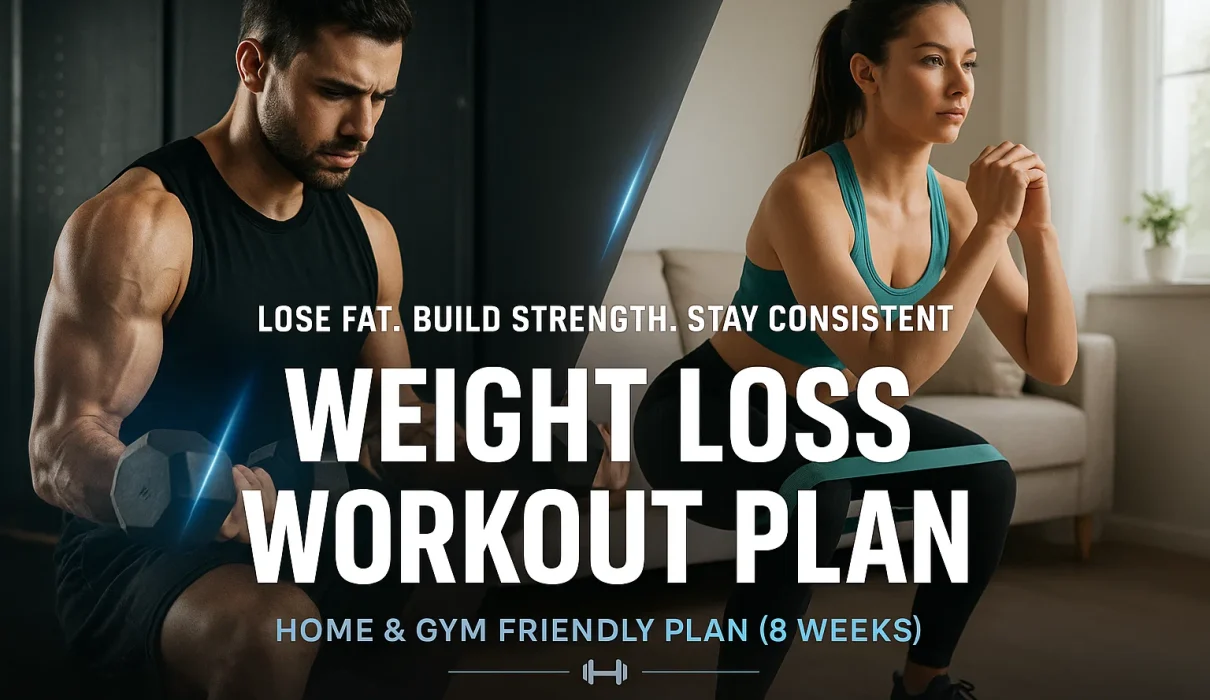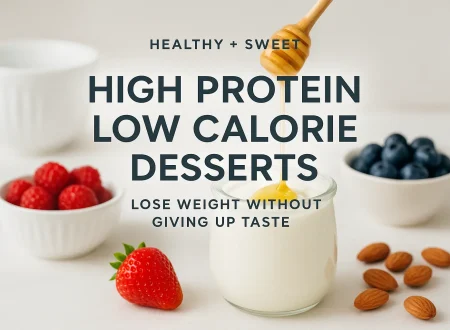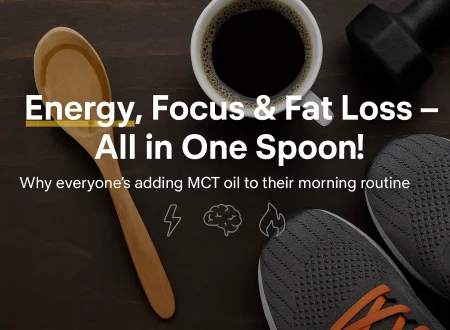You’ve probably seen hundreds of “lose fat fast” workouts online. Some promise abs in two weeks, others swear by endless cardio.
But here’s the truth: lasting fat loss isn’t about punishment — it’s about a plan that works with your body, not against it.
This guide is your complete roadmap: simple, science-backed, and flexible enough to fit real life. Whether you train at home or in the gym, this weight loss workout plan shows you exactly how to burn fat, gain strength, and finally stay consistent.
Why Most Fat Loss Plans Fail (and How Yours Won’t)
Let’s be honest: most “plans” fail because they’re just lists of exercises. No structure. No progression. No explanation of why or how.
You start excited, get sore, lose motivation, and stop.
That’s why this plan focuses on clarity and momentum. You’ll know what to do, why you’re doing it, and how to level up safely.
What makes this approach different:
- Week-by-week progression — not a copy-paste routine.
- Balanced mix of strength, cardio, and recovery.
- Nutrition that fits your lifestyle (no starvation).
- Tools to track, adapt, and celebrate progress.
It’s science turned into action — and it works.
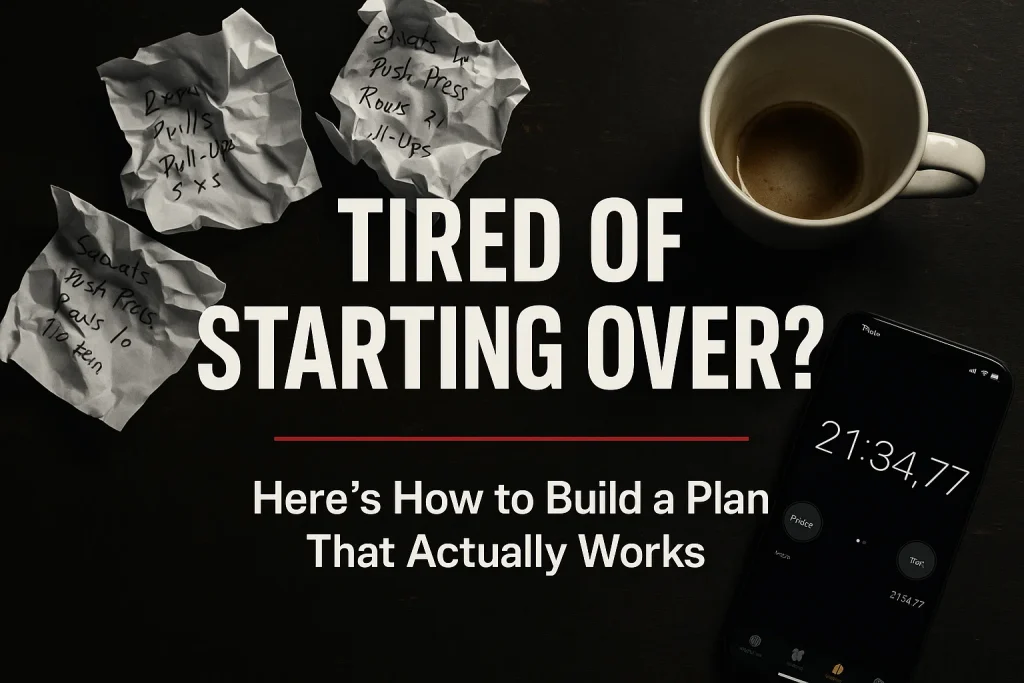
How Fat Loss Actually Works (The Simple Version)
Forget complicated formulas. Weight loss and fat loss both come down to one thing: energy balance calories in vs. calories out. When you consistently burn more energy than you eat, the body taps into stored fat.
But what you do inside that deficit determines whether you get leaner or just smaller.
Strength training tells your body, “Keep the muscle.”
Cardio tells it, “Use the fat for fuel.”
Protein feeds recovery and reduces hunger.
Sleep and hydration keep everything running smoothly.
The result? You don’t just lose weight — you reshape your body.
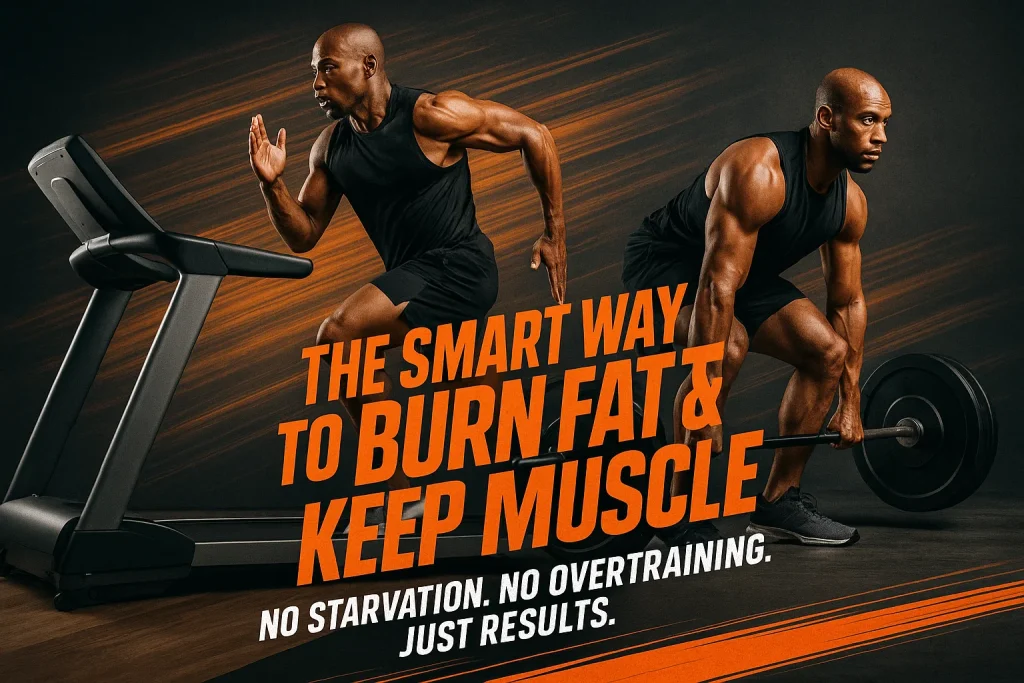
Build Your Foundation Before You Lift a Weight
Before we dive into workouts, dial in your basics:
- Calories: Use a TDEE calculator, then eat 300–500 fewer each day.
- Protein: Hit 1.6–2.2 g per kg of bodyweight daily.
- Steps: Move more — aim for 7 000–10 000 a day.
- Water: About half your body weight (in lbs) in ounces.
- Fiber: 25–35 g daily from veggies, fruit, and whole grains.
These small, simple numbers create a big difference when stacked over weeks.
Home or Gym Pick Your Playground
At the home weight loss workout plan:
Use bodyweight, dumbbells, or resistance bands. Squats, lunges, push-ups, planks, and band rows hit every major muscle.
Home training wins for convenience — you can’t skip a workout if the gym is your living room.
At the gym workout plan for weight loss:
Use barbells and machines to push heavier and progress faster. Focus on compound moves: squats, presses, rows, deadlifts.
The variety keeps workouts fresh and motivation high.

Workout Plan for Weight Loss Female
A workout plan for weight loss female helps women burn fat, build strength, and stay fit without spending hours at the gym. This plan focuses on simple exercises like squats, lunges, planks, and push-ups that shape the body and boost metabolism. Women can also add light dumbbell workouts and cardio sessions such as walking, cycling, or dancing for better results. Doing a mix of strength training, cardio, and stretching 4 to 5 times a week helps tone muscles, improve energy, and support a healthy lifestyle.
Weight Loss Workout Plan for Men
A weight loss workout plan for men focuses on burning fat while building muscle and strength. It includes compound exercises such as squats, bench presses, push-ups, and pull-ups that work many muscles at once. Men usually use heavier weights with fewer repetitions to increase power and muscle mass. Along with HIIT (High-Intensity Interval Training) and moderate cardio like running or swimming, this plan helps men lose fat faster and improve stamina. Doing 5 to 6 workouts per week, plus eating a balanced, protein-rich diet, gives the best results.
Workout Plan for Weight Loss Female vs. Weight Loss Workout Plan for Men
| Aspect | Workout Plan for Weight Loss Female | Weight Loss Workout Plan for Men |
|---|---|---|
| Main Goal | Lose fat, tone muscles, and build stamina | Lose fat, build muscle, and gain strength |
| Workout Style | Bodyweight, light weights, and cardio mix | Heavy weights, compound lifts, and HIIT |
| Reps and Sets | 12–15 reps with moderate weights | 8–10 reps with heavier weights |
| Cardio Type | Walking, cycling, dancing, or jogging | Running, rowing, or high-intensity cardio |
| Core Focus | More ab and stability workouts | Core and full-body strength exercises |
| Workout Days | 4–5 days per week | 5–6 days per week |
| Diet Plan | Fewer calories with more fiber and protein | High protein, balanced carbs, and healthy fats |
| Body Result | Slim, toned, and flexible body | Strong, lean, and muscular body |
| Hormone Support | Helps balance female hormones | Boosts testosterone and recovery |
| Visible Results | 6–8 weeks of steady progress | 6–8 weeks of fat loss and muscle gain |
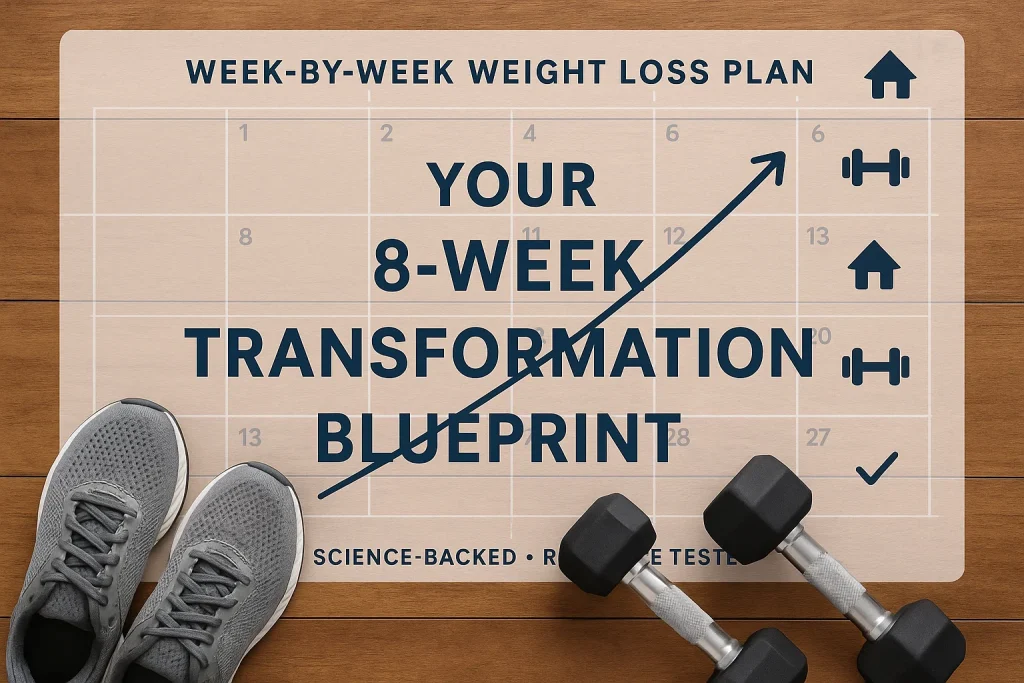
One Week Workout plan for weight loss ( 18 to 40 Ages)
You can follow this weekly plan with flexibility. For example, you can switch the plan from one day to another like swapping Monday with Wednesday or Friday with Tuesday.
Monday – Upper Body Strength
Bench or push-ups, rows, presses, curls, triceps, core.
Tuesday – Cardio or Active Recovery
Walk, bike, or swim 30 min at moderate pace.
Wednesday – Lower Body Strength
Squats, hip thrusts, lunges, RDLs, calves, planks.
Thursday – Mobility / Rest
Stretch, foam roll, light walk.
Friday – Upper Endurance Circuit
Incline press, pulldown, lateral raise, curls, core.
Saturday – Lower + Cardio Finisher
Jump squats, kickbacks, split squats, HIIT bike (15 min).
Sunday – Rest. Recharge.
If you only train three days, do Monday, Wednesday, Saturday and add steps daily.
Recovery: The Secret Weapon
Fat loss isn’t about who trains hardest — it’s about who recovers best.
Get 7–9 hours of sleep, drink water throughout the day, and take at least one full rest day weekly.
After each workout, stretch what you trained, breathe deeply for a minute, and log what you accomplished. That habit creates momentum.
Track What Matters
- Weight: check once a week, same time.
- Waist: every two weeks.
- Photos: once a month.
- Strength: note reps and weights.
- Steps: daily target, 7 000–10 000+.
The goal isn’t perfection — it’s progress.
Avoid These Fat Loss Traps
- Doing endless cardio but no lifting.
- Sleeping 4 hours and wondering why fat won’t drop.
- Eating 1 000 calories and burning out.
- Copying influencers instead of listening to your body.
Steady beats extreme, always.
Eat Smart, Not Less
Starving yourself slows metabolism. Eating smart fuels results.
A simple 1500-calorie sample day:
| Meal | Example |
|---|---|
| Breakfast | Oats + yogurt + banana |
| Lunch | Chicken, quinoa, salad |
| Snack | Greek yogurt + berries |
| Dinner | Fish, sweet potato, veggies |
No “forbidden foods.” Just balance and moderation.
Pro Tip: Schedule meals around workouts — carbs before for energy, protein after for repair.
Personalize Your Routine
This isn’t a one-size plan.
- Beginners: start light, learn movement, stay consistent.
- Intermediate: push volume, shorten rest, explore supersets.
- Advanced: rotate focus blocks — 4 weeks strength, 4 weeks endurance.
Men often prefer heavier compounds; women tend to enjoy moderate loads and higher reps. Both build lean, strong physiques.
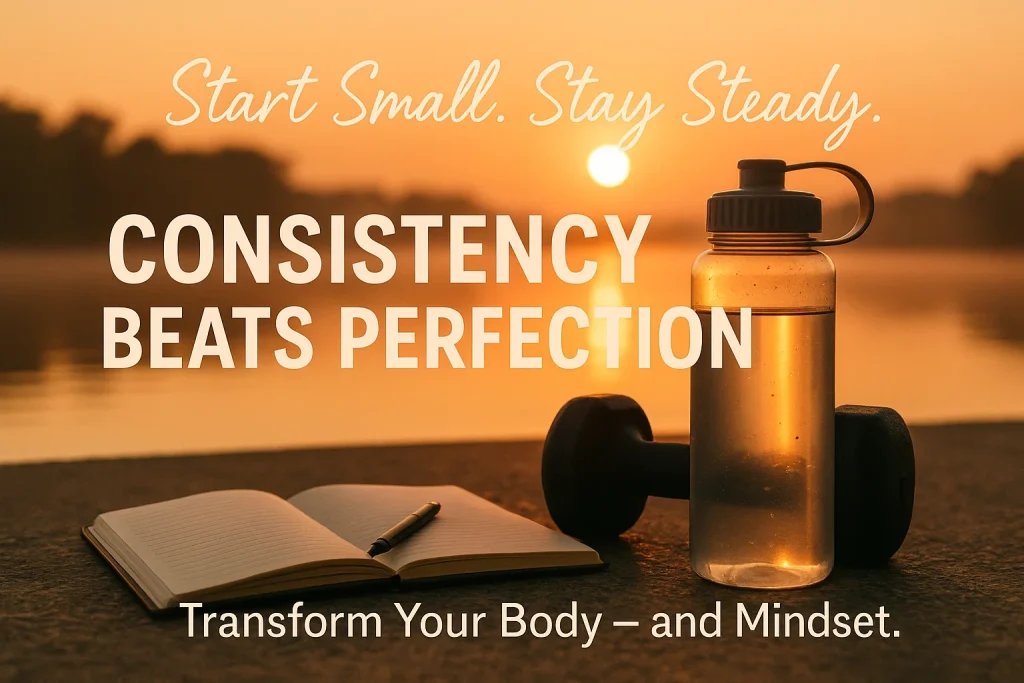
Fine Tuning Nutrition for the Long Game
Once consistent, refine macros:
- 30–35 % protein
- 35–45 % carbs
- 20–30 % fats
Stick to whole foods. Supplement only if needed — protein powder, creatine, caffeine, or a multivitamin.
No detox teas. No magic powders. Just real food and real effort.
When the Scale Stalls
Plateaus happen. Here’s how to bust through:
- Update your calorie target (you’re smaller now).
- Add 1–2 k steps daily.
- Take a lighter training week.
- Change exercises or rep ranges.
- Audit sleep and stress.
Think of it as recalibration, not failure.
Mindset Makes the Difference
Physical change starts in the mind.
Set small, specific goals: “Add two reps.” “Walk 500 extra steps.”
Track wins weekly, not daily.
Find a support system — a friend, group, or online community.
Celebrate non-scale victories: better mood, looser jeans, stronger lifts. They matter just as much as numbers.
Realistic Expectations
With consistent effort:
- Week 2 – 4: more energy, better sleep.
- Week 4 – 6: visible strength and muscle tone.
- Week 6 – 8: measurable fat loss and confidence boost.
Transformation takes time — but every rep moves you closer.
Your Five Pillar Formula for Fitness
| Element | Focus | Why It Works |
|---|---|---|
| Strength | 3–4 days/week | Builds muscle & raises metabolism |
| Cardio | 2–3 days/week | Burns extra calories & boosts heart health |
| Nutrition | Mild deficit, high protein | Drives steady fat loss |
| NEAT | 7 000–10 000 steps/day | Keeps metabolism active |
| Recovery | 1–2 days/week | Prevents burnout & injury |
Master these, and the results take care of themselves.
Grab Your Free 8 Week Weight Loss Planner
Keep track of workouts, meals, and progress with a printable planner and checklist.
Because seeing your effort on paper keeps motivation alive.
Download Plan Now
Faqs
How do I design a weight loss workout plan?
Mix 3–4 strength sessions with 2–3 cardio days. Keep workouts 45–60 minutes and stay in a small calorie deficit.
Which plan works best?
The one you can stick to — balanced strength and cardio always beats extremes.
What’s a simple weekly setup?
Upper, Lower, Cardio, Rest, Circuit, Optional HIIT, Rest.
Can I train at home?
Absolutely. Dumbbells, bodyweight, and consistency beat fancy equipment.
How long to see results?
Most people notice visible change within six to eight weeks.
Do men and women need different workouts?
No — intensity and progression matter more than gender. Adjust loads and rest to your comfort.
Can I train while fasting?
Yes. Schedule workouts after your main meal and prioritize protein when you break fast.
What if I miss a week?
Just jump back in. Progress isn’t lost — consistency wins over time.
Final Thoughts
A great weight loss workout plan isn’t a crash course — it’s a foundation for life.
Train with intent. Eat to fuel your goals. Rest enough to grow stronger.
You don’t need perfection; you need persistence.
If you start today and stay steady, your next eight weeks could redefine how you look, move, and feel — not just for now, but for good.
References
American College of Sports Medicine (ACSM), Centers for Disease Control and Prevention (CDC)


